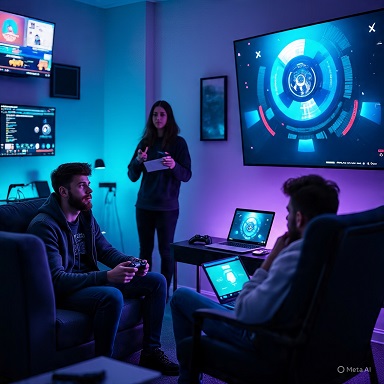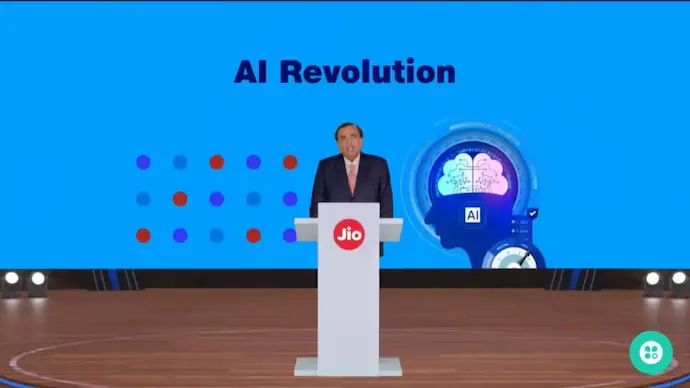Stories you may like
Android Developer
An Android developer is a software engineer who specializes in designing, developing, and maintaining applications for devices running the Android operating system. These developers create mobile apps that run smoothly and efficiently on a variety of Android devices, including smartphones, tablets, and wearables. Android developers work closely with designers, product managers, and other members of the development team to bring innovative and user-friendly apps to market. They utilize programming languages such as Java or Kotlin to write code for Android applications, leveraging the Android SDK (Software Development Kit) and development tools such as Android Studio to build and test their apps.
Duties and Responsibilities
The duties and responsibilities of an Android developer typically include:
- App Development: Designing, coding, testing, and debugging Android applications using programming languages such as Java or Kotlin. Android developers collaborate with designers and product managers to translate app requirements into functional and user-friendly interfaces, implementing features, UI elements, and navigation flows that meet user needs and enhance app usability.
- Maintenance and Updates: Regularly updating and maintaining Android apps to ensure they remain compatible with the latest Android OS versions and device specifications. Android developers monitor app performance, fix bugs, address security vulnerabilities, and implement new features or enhancements based on user feedback and market trends to improve app functionality and user satisfaction.
- Integration and Backend Connectivity: Integrating Android applications with backend systems, databases, and web services to enable data exchange, user authentication, and synchronization of app content. Android developers collaborate with backend developers to implement APIs, manage data storage, and handle network communication, ensuring seamless connectivity and data consistency between the app and server-side components.
- Optimization and Performance Tuning: Optimizing app performance, responsiveness, and resource utilization to deliver smooth and efficient user experiences on a variety of Android devices. Android developers use profiling tools, performance metrics, and code optimization techniques to identify and address performance bottlenecks, memory leaks, and other issues that may impact app responsiveness or battery life.
- Quality Assurance and Testing: Conducting thorough testing and quality assurance activities to verify app functionality, stability, and compatibility across different Android device models, screen sizes, and OS versions. Android developers write unit tests, conduct manual and automated testing, and perform user acceptance testing to identify and resolve defects, ensuring high-quality app releases that meet quality standards and user expectations.
What Skills Are Needed to Become an Android Developer?
Becoming an Android developer requires a combination of technical and creative skills.
- Java programming skills: Knowing Java is essential for becoming an Android developer.
- XML: XML is used for constructing layouts for Android apps and, therefore, must be mastered by any aspiring Android developer.
- Knowledge of Android SDK: Every Android developer should understand the core components of the Android SDK, such as Activities, Services, Content Providers, Broadcast Receivers, and Intents.
- Familiarity with Android Studio: Android Studio is the official Integrated Development Environment (IDE) for Android development, and all developers should be familiar with it.
- Understanding of design guidelines: Every Android developer should understand the design guidelines for Android, which focus on providing an intuitive user experience.
- Testing: Knowing how to test apps for different versions of Android is an essential skill for any Android developer.
- Version control systems: Many Android developers use version control systems, such as Git, to manage their code.
- Collaborative work: Android developers should be able to work collaboratively with other developers, designers, and stakeholders.
What Job Roles Can You Get as an Android Developer?
The most common job roles for an Android Developer are:
- Senior Android Developer
- Android Software Engineer
- Android Application Developer
- Mobile Application Developer
- Android Developer Intern
- Android UI/UX Designer
- Mobile Software Architect
- Android Game Developer
- Android QA Engineer
- Android Technical Lead.
With the right skills and experience, you can find a range of job roles in the Android development field.
The main components of Android are:
- Android Runtime
- Libraries
- Android Framework
- Application Framework
- Dalvik Virtual Machine
- Security
- Android Media Framework
- System Services
- Webkit
- Native C/C++ Libraries
Types of Android Developers
There are various types of Android developers, such as:
- Android Application Developer: Specializes in designing and developing mobile applications for the Android platform. They work on various aspects of app development, including user interface design, feature implementation, performance optimization, and debugging, to create engaging and functional Android apps.
- Android Game Developer: Focuses on creating mobile games for Android devices, leveraging game development frameworks, libraries, and tools to design and build immersive gaming experiences. Game developers may specialize in areas such as 2D or 3D game development, game physics, graphics rendering, and multiplayer game networking to deliver captivating and interactive gameplay.
- Android UI/UX Designer: Concentrates on designing intuitive and visually appealing user interfaces (UI) and user experiences (UX) for Android applications. UI/UX designers collaborate with developers, product managers, and stakeholders to create wireframes, mockups, and prototypes, defining app layouts, navigation flows, and interactive elements that enhance usability and user engagement.
- Android Wear Developer: Specializes in developing applications and experiences for wearable devices running the Android Wear OS. Wearable developers focus on creating lightweight and context-aware apps that leverage device sensors, notifications, and voice commands to provide convenient and seamless interactions on smartwatches and other wearables.
- Augmented Reality (AR) Developer: Focuses on integrating augmented reality features and functionalities into Android applications to enhance user experiences with virtual overlays, 3D objects, and interactive content. AR developers leverage AR development platforms, such as ARCore, to create immersive AR experiences for gaming, education, retail, and other industries.
What is the workplace of an Android Developer like?
Many Android developers work in office settings, either within dedicated software development companies, tech startups, or the IT departments of larger organizations. In these environments, they typically have access to modern workstations equipped with the necessary hardware and software tools for Android app development, including powerful computers, smartphones, and testing devices. Collaboration and communication are key aspects of the workplace, with developers often working closely with other team members such as designers, product managers, and QA testers to bring app projects to fruition.
With the rise of remote work and distributed teams, some Android developers have the flexibility to work from home or other remote locations. Remote work arrangements can offer greater flexibility and work-life balance, allowing developers to manage their schedules and productivity according to their preferences. Remote developers may use communication and collaboration tools such as video conferencing, instant messaging, and project management platforms to stay connected with their team members and coordinate their work effectively.
The workplace of an Android developer may involve occasional travel or on-site visits, especially when collaborating with clients or stakeholders, attending industry events or conferences, or conducting user research and testing. Developers may need to travel to client locations or participate in workshops, training sessions, or networking events to stay
How to become an Android Developer
Becoming an Android developer involves a combination of education, practical experience, and ongoing learning. Here's a general guide to help you get started:
- Educational Foundation: Obtain a Bachelor's Degree in Computer Science, Software Engineering, or a related field. While not always mandatory, having a formal education can provide a strong foundation in programming concepts and algorithms.
- Learn Programming Languages: Master the programming languages commonly used in Android development, particularly Java and Kotlin. These languages are essential for creating Android applications.
- Familiarize Yourself with Android Development Tools: Learn how to use development tools such as Android Studio, which is the official Integrated Development Environment (IDE) for Android app development. Familiarize yourself with its features and functionalities.
- Study Android Development: Dive into Android development by studying the Android Software Development Kit (SDK), including its various components such as activities, fragments, layouts, and resources. Explore the official Android documentation and tutorials provided by Google.
- Build Projects: Start building your own Android projects to apply what you've learned. Begin with simple apps and gradually move on to more complex ones. Building projects will help you gain practical experience and showcase your skills to potential employers.
- Join Online Communities: Participate in online communities and forums dedicated to Android development. Engage with other developers, ask questions, and share your knowledge. Websites like Stack Overflow, Reddit's r/androiddev, and GitHub are excellent resources for learning and networking.
- Work on Open Source Projects: Contribute to open source projects related to Android development. This not only allows you to collaborate with experienced developers but also helps you improve your skills and visibility within the developer community.
- Consider Specialization: Explore different areas of Android development, such as mobile games, augmented reality, or Internet of Things (IoT) applications. Specializing in a niche can make you more attractive to certain employers and broaden your career opportunities.
- Build a Portfolio: Create a portfolio showcasing your Android projects, contributions to open source, and any relevant work experience. A strong portfolio is essential for demonstrating your expertise to potential employers.
- Gain Work Experience: Seek internships, part-time jobs, or freelance opportunities to gain real-world experience in Android development. Working on actual projects for clients or companies will further enhance your skills and credibility as a developer.
Certifications
While certifications are not always mandatory for Android developers, they can demonstrate your expertise and commitment to potential employers. Here are some certifications that can enhance your credentials as an Android developer:
- Associate Android Developer (AAD): Offered by Google, the Associate Android Developer certification is designed for developers who have some experience working with Android and want to demonstrate their proficiency in basic Android development skills. It assesses competency in areas such as designing and building Android apps, using Android development tools, and debugging and testing Android applications.
- Professional Certification in Android Application Development: Offered by various online learning platforms and educational institutions, this certification program typically covers advanced topics in Android development, including advanced user interface design, data persistence, background processing, and integrating third-party libraries and services. Completing this certification can demonstrate your mastery of Android development concepts and techniques.
- Android Developer Nanodegree: Provided by Udacity in collaboration with Google, the Android Developer Nanodegree program offers hands-on projects and personalized feedback from industry experts. Completing this program can lead to a Nanodegree certificate, which can validate your skills and readiness for a career in Android development.
- Vendor-Specific Certifications: Some companies or organizations may offer vendor-specific certifications for their platforms or technologies related to Android development. For example, if you specialize in a particular framework or tool commonly used in Android development, such as Firebase or Kotlin, you may find certification programs offered by the respective vendors.
- Professional Certifications in Related Technologies: While not specific to Android development, certifications in related technologies such as Java programming, Kotlin programming, mobile app development, or software engineering can also be valuable. These certifications demonstrate your proficiency in foundational concepts and skills that are relevant to Android development.












User's Comments
No comments there.